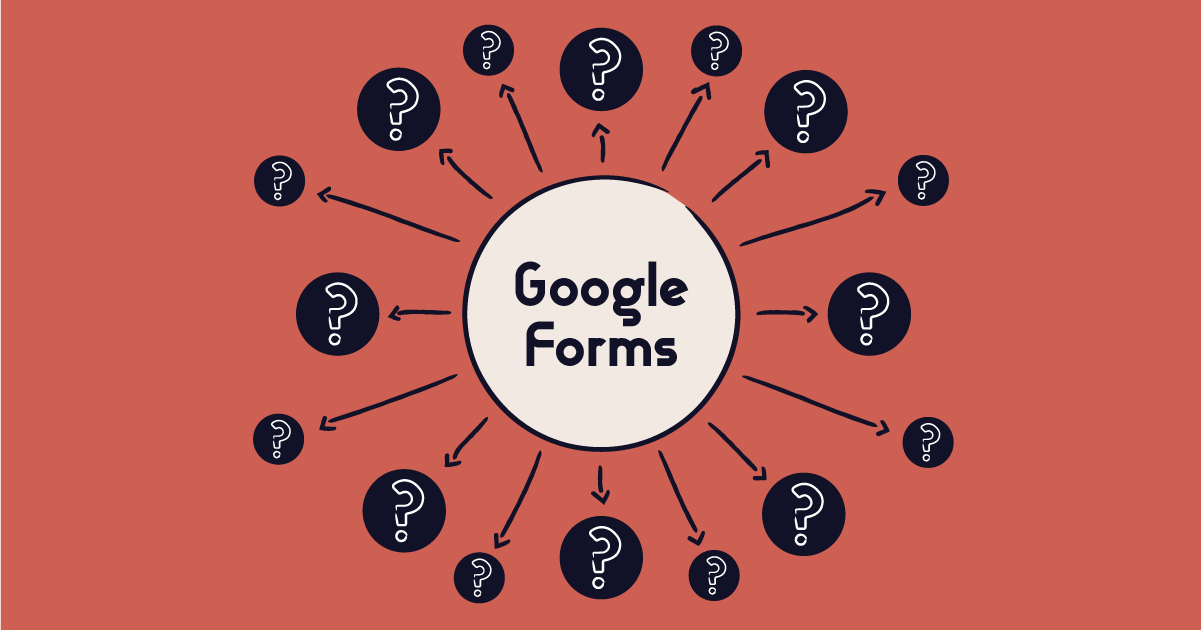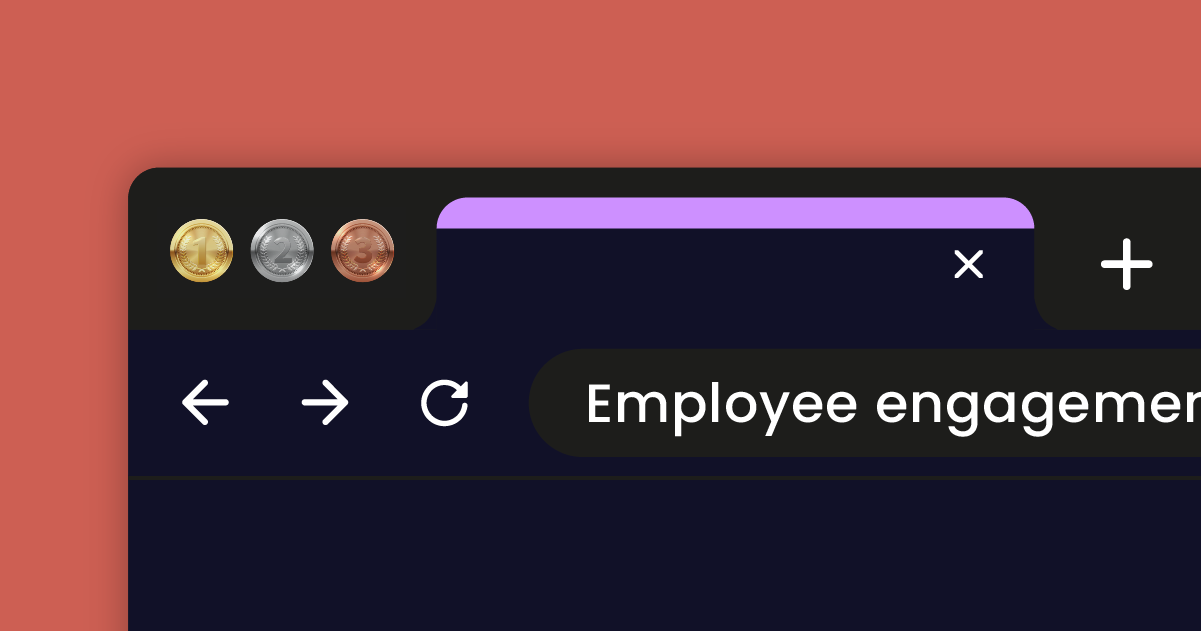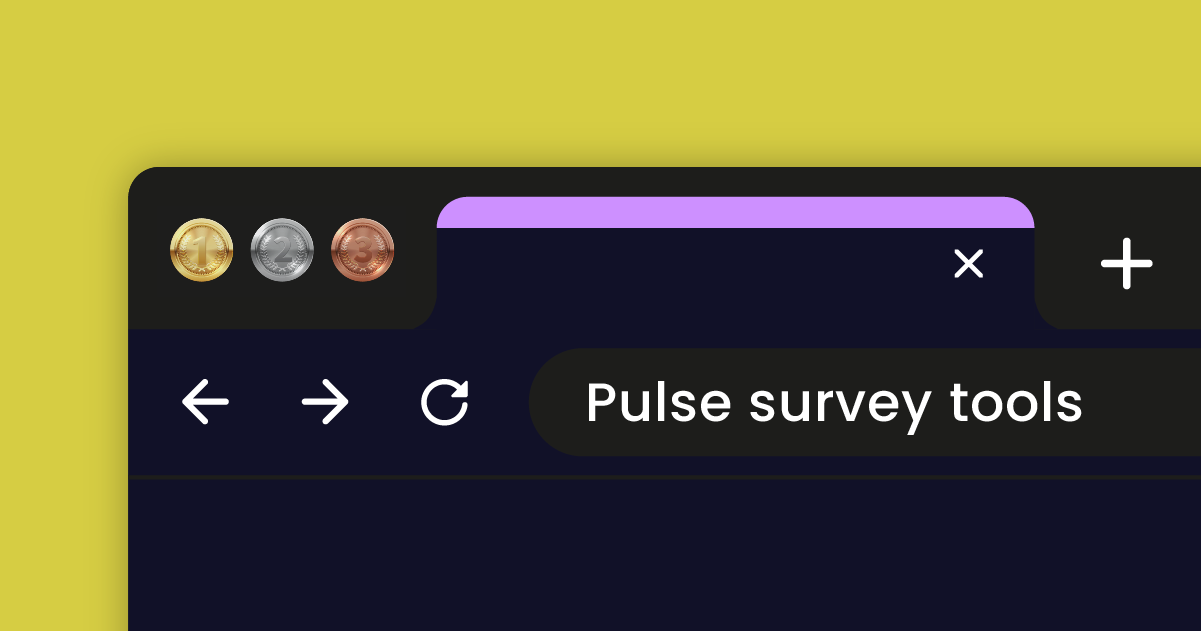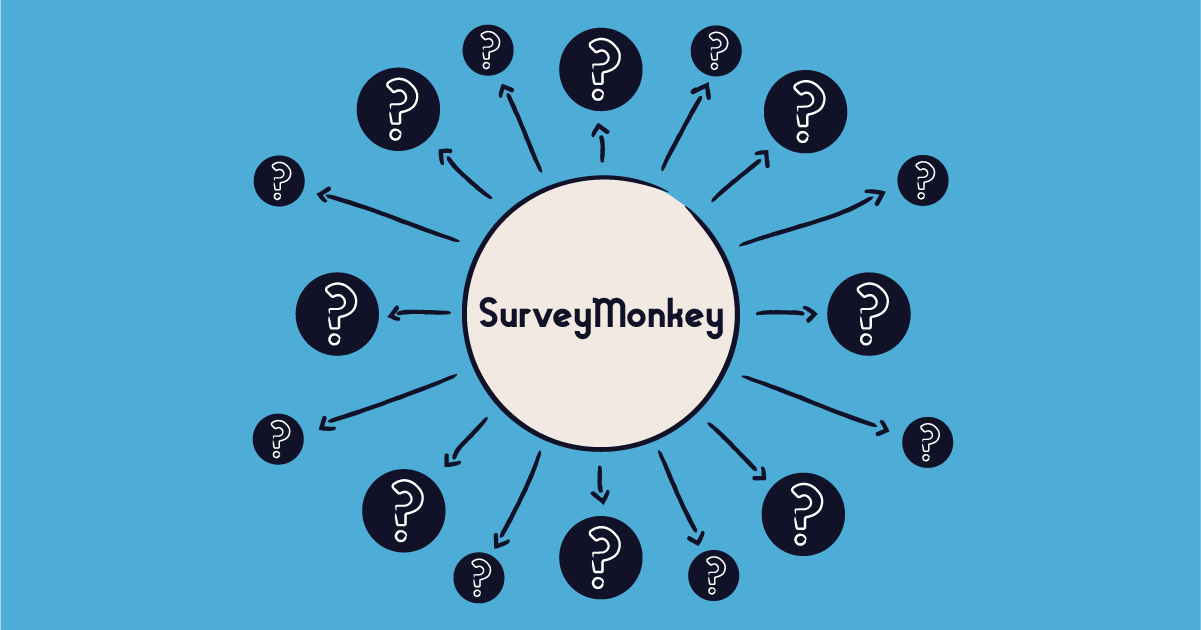Google Forms vs SurveyMonkey:
which is best for HR surveys?
Book a demo
Learn how to cut HR admin

Get any question answered

Zero commitment
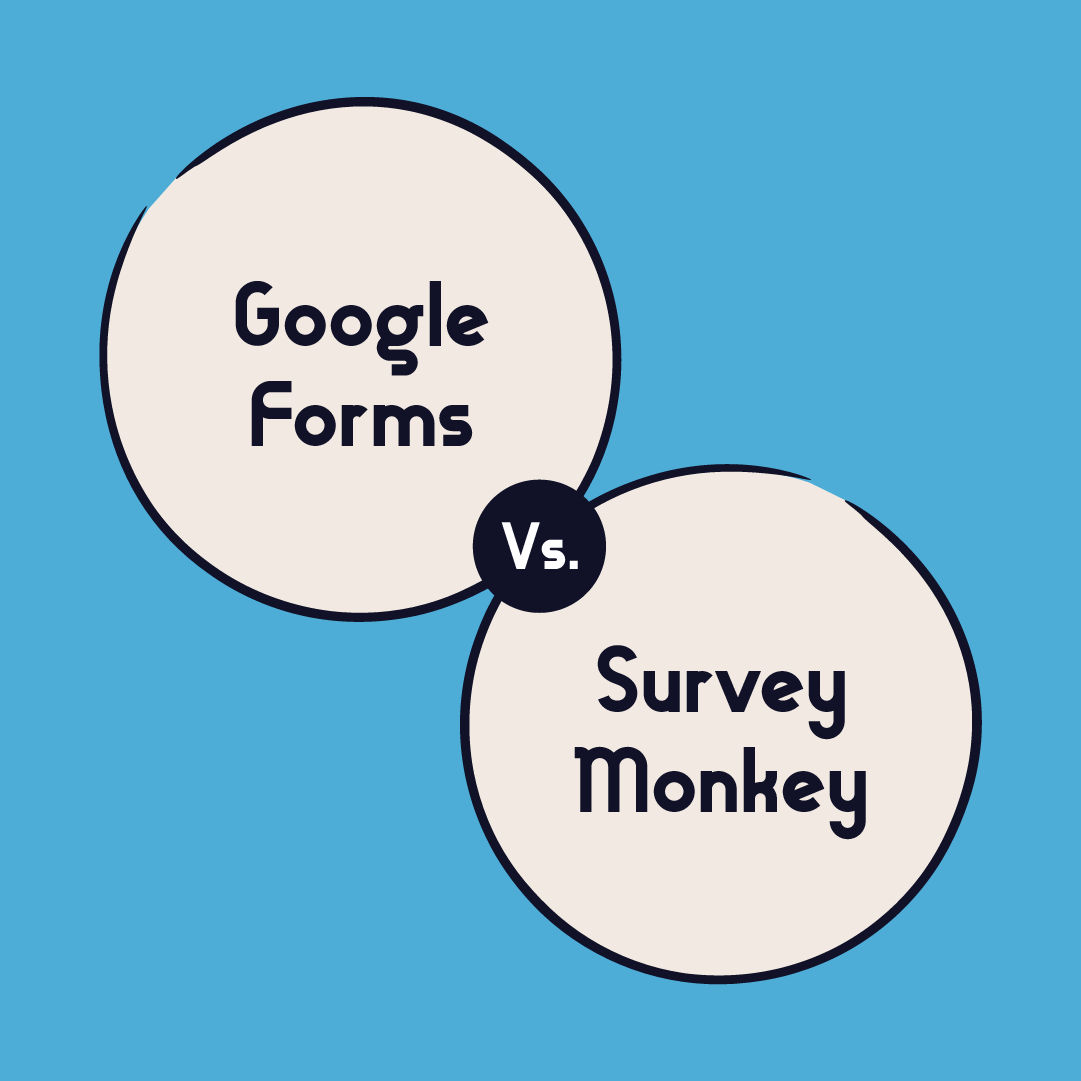

So, you’re looking for the best way to run employee engagement surveys and have narrowed your search down to two contenders, Google Forms and SurveyMonkey.
But how do you decide which one’s right for the job?
Well, part of my job at Charlie is to research other HR solutions so that we can improve our own platform, and I’ve studied the pros and cons of both tools pretty extensively. I’m going to share my learnings here and compare them both side-by-side, Google Forms vs SurveyMonkey, so that you can decide which is best suited to your HR needs.
As part of running employee engagement and HR surveys, you’ll need to figure out the right process for your business — what types of survey questions to ask, when to ask them, and how frequently etc. So it’s important to bear in mind that a generic survey tool won’t solve all your HR problems. Because of that, I’ll also suggest an alternative to SurveyMonkey and Google Forms towards the end of this blog (hint: it’s a complete HR platform where surveys are just one of the available features), as then you'll be fully informed to make your choice.
What are the main differences between Google Forms and SurveyMonkey?
Google Forms and SurveyMonkey are popular online tools for automating the creation and distribution of forms and surveys.
Google Forms is part of Google Workspace and sits alongside the suite of apps that includes Google Docs, Google Sheets, Google Slides, Google Drive, Gmail and Google Sites. Google Forms is a web application only.
SurveyMonkey is a cloud-based tool for creating, sending and analysing surveys.
Most people consider Google Forms and SurveyMonkey side-by-side for the same uses, but they’re fundamentally quite different. And the clue is actually right there in their names: Google Forms is better for creating and sending out forms, while SurveyMonkey is better for creating and sending out surveys.
But what’s the difference between a form and a survey?
Typically, a form collects data (if you check out the templates in Google Forms you’ll see ones for ‘RSVP’, ‘Find a time’ and ‘Events registration’), and surveys ask for opinions and feedback (and are therefore better suited for gathering information relating to HR).
Plans & pricing
Google Forms
- Free to use with a personal Google account.
It also comes as part of the Google Workspace package for businesses for a monthly subscription.
SurveyMonkey
-
Basic
Basic
- Great for getting started, but too basic for ongoing business use - a paid account is required to unlock any of the main features
-
Individual Advantage
£32 per month / £384 annually
- For individuals rather than businesses
-
Team Advantage
£25 per month, starting at 3 users, billed annually
- Offers collaboration tools and more features
-
Team Premier
£75 per month, starting at 3 users, billed annually
- Gives you access to advanced surveys and analysis
-
SurveyMonkey Enterprise
Quote on application/EOA
- All the advanced survey features
- App integration
- HR-specific survey templates and Question Bank questions
Google Forms vs SurveyMonkey: In-depth comparison
Before we go deeper into Google Forms vs SurveyMonkey, let’s quickly review what you’re looking for a tool to deliver. You want something that:
- Collects feedback and insights from your employees, easily and efficiently
- Enables you to consistently run employment engagement surveys and HR surveys
- Is within budget
SurveyMonkey is a common choice for medium to large-sized companies (300+ employees) with well-established HR teams, while Google Forms typically appeals to beginners because it’s free.
SurveyMonkey and Google Forms are both generic, rather than HR-specific, tools. So let’s take a look at what they offer, and how they differ, with specific goals in mind.
HR surveys and employee engagement surveys
🏆 SurveyMonkey wins
If your goal is to create and send surveys, then SurveyMonkey is always going to come out top:
- SurveyMonkey’s ‘Build it for me’ feature creates the survey for you. You select ‘Build it for me’ at the top of the page and then follow the prompts from the Genius Assistant, which asks you a series of questions (Who do you want to survey? What’s your survey goal? etc.) It builds the survey from your answers and pre-populates it with questions that match your goal. Once the survey’s generated, you have the option to customise it.
- You can select a ‘Employee Satisfaction’ template under ‘Build it for me’, for example, which will quickly build you a survey with nine questions. And the Genius Assistant will then help you to customise the basic survey. This feature is only available on paid accounts.
- You can also choose to ‘Copy an existing survey’ in SurveyMonkey and recycle a previous survey’s structure and questions. So the more surveys you create, the more ready-made templates you have to choose from. SurveyMonkey is far superior to Google Forms when it comes to making surveys.
- Google Forms has some basic templates to get you started, but aside from those you have to do everything from scratch — including coming up with the questions, as there’s no question bank to pre-populate or seek inspiration from.
Analytics
🏆 SurveyMonkey wins
One of the most applauded features of SurveyMonkey is its analytics.
The analysis tools in SurveyMonkey help you collect, share and respond to your survey data, and can be found in the ‘Analyse Results’ section of the survey. You can analyse employee engagement survey results, browse individual responses, and export survey data into different formats.
You unlock more features as you move up SurveyMonkey’s tier of account plans — the more advanced the plan, the more advanced the analytics.
SurveyMonkey lets you create ‘rules’ to answer more specific questions about your data, and analyse survey results in different ways. Paid users can create an unlimited number of rules, and free users can create one rule.
Google Forms has no analytical features, but you can send form data to other Google apps in order to analyse it — Google Sheets for graphs and charts, for example.
Pricing
🏆 Google Forms wins
Google Forms is free to access with a personal Google account, so it’s always going to win on price. It also comes as part of the Google Workspace package for businesses for a monthly subscription after a free trial period, but most people will likely use their personal account to test it out.
SurveyMonkey has a free basic plan, and you’ll receive a notification when you need to move to a paid account to unlock a selected feature. You can only send the most basic surveys for free, with a limited number of question types.
Multinational companies
🏆 SurveyMonkey wins
If you work across different countries and languages, SurveyMonkey is going to be a better fit for your business.
SurveyMonkey offers translations in 55 languages for all survey fields and buttons.
You can include different language options in the same survey so respondents can choose their preferred language.
And it comes with a library of popular questions in many different languages.
3 reasons to choose Google Forms
🤗
Immediate access with a Google account
📇
Ideal for small-scale use and creating simple forms with basic templates
🆓
It's free
3 reasons to choose SurveyMonkey
🏢
Good for medium to large-sized business
📁
Extensive bank of templates and questions
⚙️
Access to advanced features like A/B testing and branching logic (custom survey paths based user response)
Have you considered Charlie?
While you’re here, I’d like to suggest an alternative to Google Forms and SurveyMonkey as a great way to run your employee engagement and HR surveys: CharlieHR.
Charlie is an all-in-one HR management platform that saves you time on HR admin and fully automates employee engagement surveys and HR surveys.
There are lots of reasons why small businesses and startups find Charlie to be more useful and effective than SurveyMonkey and Google Forms, but one comes top of the list:
You have one simple system to build and roll out your HR surveys, with all feedback data stored in one place.
In addition, you are able to:
- Choose from a selection of expert-backed survey templates, which saves you time and ensures your surveys are professional and always to a high-standard
- Anonymise employee responses and encourage your team to share honest and valuable feedback
- Run recurring surveys — pick a timeframe, and the system sends out the questions automatically
- Build your own survey from scratch and fully customise it.
Charlie
Google Forms and SurveyMonkey
✅
All-in-one HR software: allows you to automate all your HR processes, not just your surveys
❌
Generic tools only offering forms or surveys
✅
More cost effective when you compare it to getting: 1 x tool like SurveyMonkey + 1 x performance management tool + 1 x time off management tool
❌
SurveyMonkey isn’t a great fit for startups and small businesses, due to cost and being surveys only. And Google Forms is too basic for most business’ HR surveys
✅
Comes with ready-made survey templates built by qualified HR experts. This means you don’t just get a tool to automate the surveys, but also the expertise to ask the right questions and get the best answers from your team
❌
Neither Google Forms or SurveyMonkey have been built with HR in mind, by HR experts
✅
All-in-one plan includes all of Charlie’s features
❌
You can only unlock all of SurveyMonkey’s features at the top payment tier
✅
Dashboard tracks response rates and analyses historical data
FAQs

Yes, Charlie is a great SurveyMonkey alternative. The cost will depend on the size of your team – for example, a team that has between 5 and 14 employees will pay £40 per month – but will include all of our features: employee engagement, HR surveys, onboarding, time off, and perks.
The software implementation is free, and you can pay monthly and cancel any time. Plus, you can try it out at no cost for two weeks with our 7 day free trial.

There are many reasons why small businesses and startups choose Charlie over Google Forms, but one big benefit is because you have a single, simple system to create and send surveys, with all feedback data stored in one easy-to-access, safe place.
Charlie is an all-in-one HR management platform that saves you time on HR admin and fully automates employee engagement surveys and HR surveys. You can try it out for free with our 7 day free trial.





